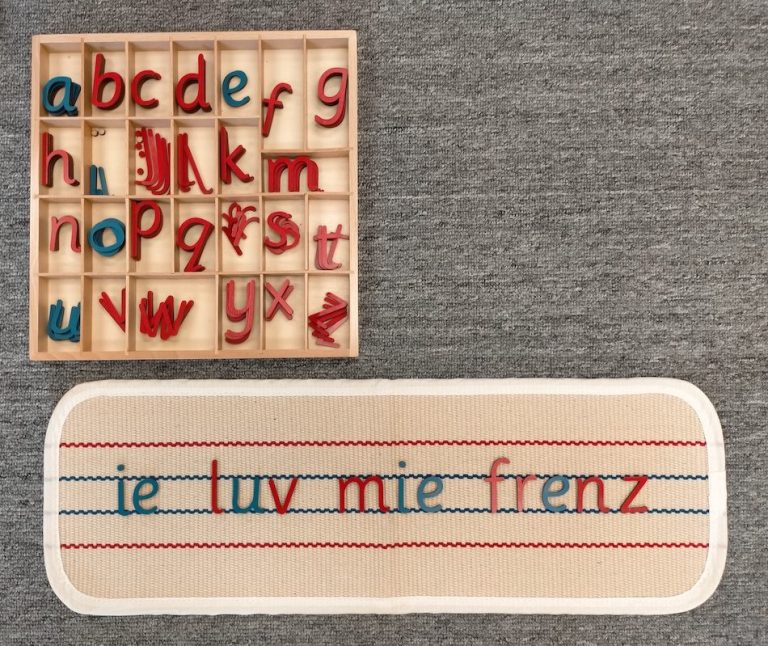The Montessori Method
A Montessori Awakening
At Whetstone Montessori Nursery we believe that each child embarks on a unique voyage of exploration. When your child steps into our nursery, they bring with them a world of interests, hopes, and dreams. Like voyagers setting foot in a distant land, they have yet to discover the language, places to explore, or customs of this new world. As Montessori educators, our role is to gently guide these young adventurers, helping them grasp that this unfamiliar land is, in truth, theirs to nurture and cherish, a place they can flourish and discover not only the world around them but also the depths of their own potential. Here, the child will take their first steps into the social realm. It may be the first time they spend extended periods away from their parents, a journey of growing awareness of the needs and feelings of others.
A Curriculum Centred Around Your Child
We follow the natural rhythm of each child's development, embracing holistic education. In the serene atmosphere of our nursery autonomy, responsibility, self-control, and self-reflection will flourish. We encourage children to follow their interests, ask questions, and investigate, knowing that academic success will naturally follow. Your child's brain undergoes significant neural development from ages 3 to 6, allowing them to readily absorb information through imitation, observation, and investigation guided by our dedicated teachers.
Flow
Follow the child, go at the pace of the child. An unhurried child is a happy child, and a happy child will be able to take an active role in their own learning in a way that a rushed and anxious child cannot.
Flow - psychologists talk about the concept of ‘flow’ and how we are at our best when we are fully immersed in an activity that absorbs us completely. When in a flow state time seems to pass unnoticed. Concentration on a task is one aspect of flow, and this is one of the skills children develop in the Montessori Children’s House, as they focus on the moment. Following their inner drive to learn, given the chance to work uninterrupted, children will concentrate on a task for a long period of time. They are at their best focusing deeply on a purposeful and meaningful activity, of which there are many in the Montessori classroom. And, of course, this is a great source of satisfaction for the child. When we say that the children don’t do what they like, but like what they do in Montessori, this is what we mean.
For the state of flow to arise, the child must know what they are doing, how to do it, and how to overcome any difficulties themselves. They must also be free of any distractions.
Fostering Self-Control and Flexible Thinking
You may wonder how we nurture self-control and flexible thinking in the children. This is achieved through a tranquil environment where your child can work and play for uninterrupted periods. Our nurturing environment fosters personal growth and equips children with motivation and resilience. The children explore different areas of study; what we call in Montessori the practical life, sensorial, mathematics, language, world culture, and creativity.
....
l
Practical life
Everyday routines that we take for granted are something special for the young child – dressing yourself, preparing food, cleaning up, are all exciting discoveries that challenge the young child’s abilities and strength of focus. Repetition is the key to mastering these skills. Practical Life provides a connection with home life that makes the child’s transition to nursery easier.

Sensorial
From a young age children learn with their senses and with their hands. Montessori recognises and follows this, offering many activities that engage and refine the child’s five senses, for example, by helping them distinguish between the different three-dimensional geometric shapes that they will meet later in math.

Mathematics
Working from the concrete to the more abstract, and from simple to complex, children in a Montessori nursery learn difficult mathematical concepts in a natural way. For example, the concept of zero (nothing) is difficult to understand without being able to use the spindles to learn the true meaning of zero.

Language
Reading and writing is taught in Montessori through logical steps. Children learn to write before learning to read. They use the Movable Alphabet, among other tools. The phonic letter sounds are learnt using the Sandpaper letters, and these are then combined in the Moveable Alphabet to form words.

World culture
Culture in Montessori encourages the children to develop an interest in the world around them, as well as nature, science, botany, music and art. These areas are all explored in depth with puzzles and activities that the children enjoy on their own and in small groups.

We need your consent to load the translations
We use a third-party service to translate the website content that may collect data about your activity. Please review the details in the privacy policy and accept the service to view the translations.
